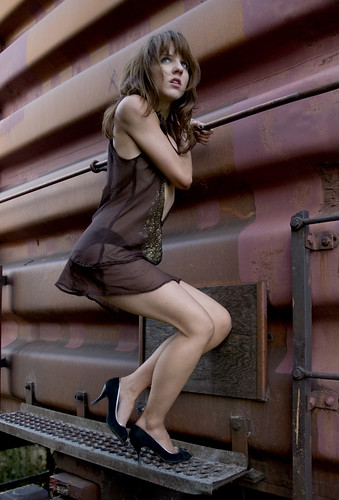The current Cape Canaveral Light is not the first lighthouse on Cape Canaveral.
A 60-foot (18 m) tall brick structure was built on the Cape in 1848. The light consisted of 15 lamps each with a 21-inch (530 mm) reflector. The first lighthouse keeper left the lighthouse during a Seminole War scare, and refused to return to his post. Sailors heavily criticized the lighthouse, with complaints that the light was too weak and too low to be seen before ships were on the reefs near the Cape. the government contracted for construction of a new lighthouse in 1860, but the start of the American Civil War stopped work. The lamps and mechanism for the light were removed from the lighthouse and buried in the lighthouse keeper's orange grove to protect them from Federal raids.
The Lighthouse today
When rockets began launching from the Cape in the early 1950s, all residents except the lighthouse keeper were relocated to other areas. In 1954, the need for a keeper to live nearby was eliminated by automating the light. Soon after, the keeper's homes were demolished. After it was discovered that strong vibrations that accompany launches were damaging the first-order Fresnel lens, it was removed in 1993 and placed on display in a museum at the Ponce de Leon Inlet Light. Since toxic lead paint was used to paint the lighthouse, in 1995, a restoration project began to sand blast the harmful paint off.
Ownership of the lighthouse was transferred to the United States Air Force in 2000 (the lighthouse is located inside the Cape Canaveral Air Force Station).
It is the only fully operational lighthouse owned by the United States Air Force.
In 2003, the oil house was restored to its original (1890s) state (strong winds had damaged the roof in the 1970s and a window was added in the early 1900s). In 2006, another project restored the lantern room and the structure was repainted using modern materials. Ground sample tests, however, still show a very high level of lead in the soil around the tower. As a result, visitors are not allowed within fifty yards of the base until it is cleaned up.
The Cape Canaveral Lighthouse Foundation and volunteers are instrumental in restoration projects and in interpreting the lighthouse history. The Foundation has a website at http://www.CanaveralLight.org
Hi my friends,
I hope you find this interesting. The picture above of the lighthouse I made some days ago, the text is from Wikipedia. If interested to read more go to their site.
Thanks also for all your wonderful comments and compliments to my last post.
Next Thursday is "Photo-swap-Thursday" again, keep it in mind :))
Have a wonderful Tuesday!
~Susanne
A little bit of self promotion now:
Buy my photography printed, framed or stretched on Canvas here:
My European Fans buy my photography and CALENDARS 2011 here:
















0 comments:
Post a Comment